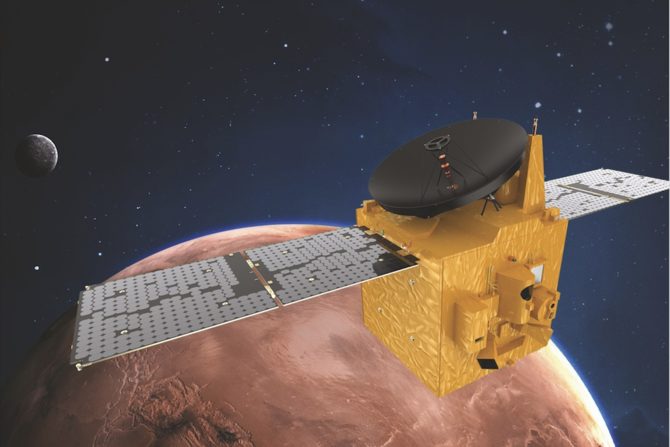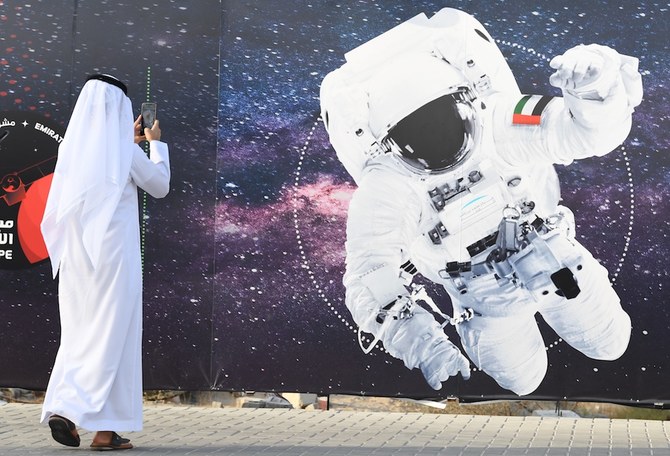NOTE TO READERS:
This article has been updated to reflect a delay in the launch of the Hope Probe, which was originally scheduled at 00:51:27 a.m. UAE time on Wednesday.
DUBAI: Our fascination with space knows no bounds. A desire to unlock the secrets and mysteries of the universe has for decades encouraged nations to push the ever-advancing boundaries of scientific and technical knowledge as they strive to explore the unknown.
There have been a number of historic landmarks along the way, including the successful launch of the Sputnik 1 satellite in 1957, Yuri Gargarin’s orbit of the Earth in 1961, and the first Moon landing in 1969.
To this illustrious list we can now add the first interplanetary expedition by an Arab country, with the UAE launching on Monday the Emirates Mars Mission.
The unmanned probe, called Hope, lifted off from Tanegashima Space Center in Japan early on Monday and commenced its 495-million kilometer journey to the Red Planet."
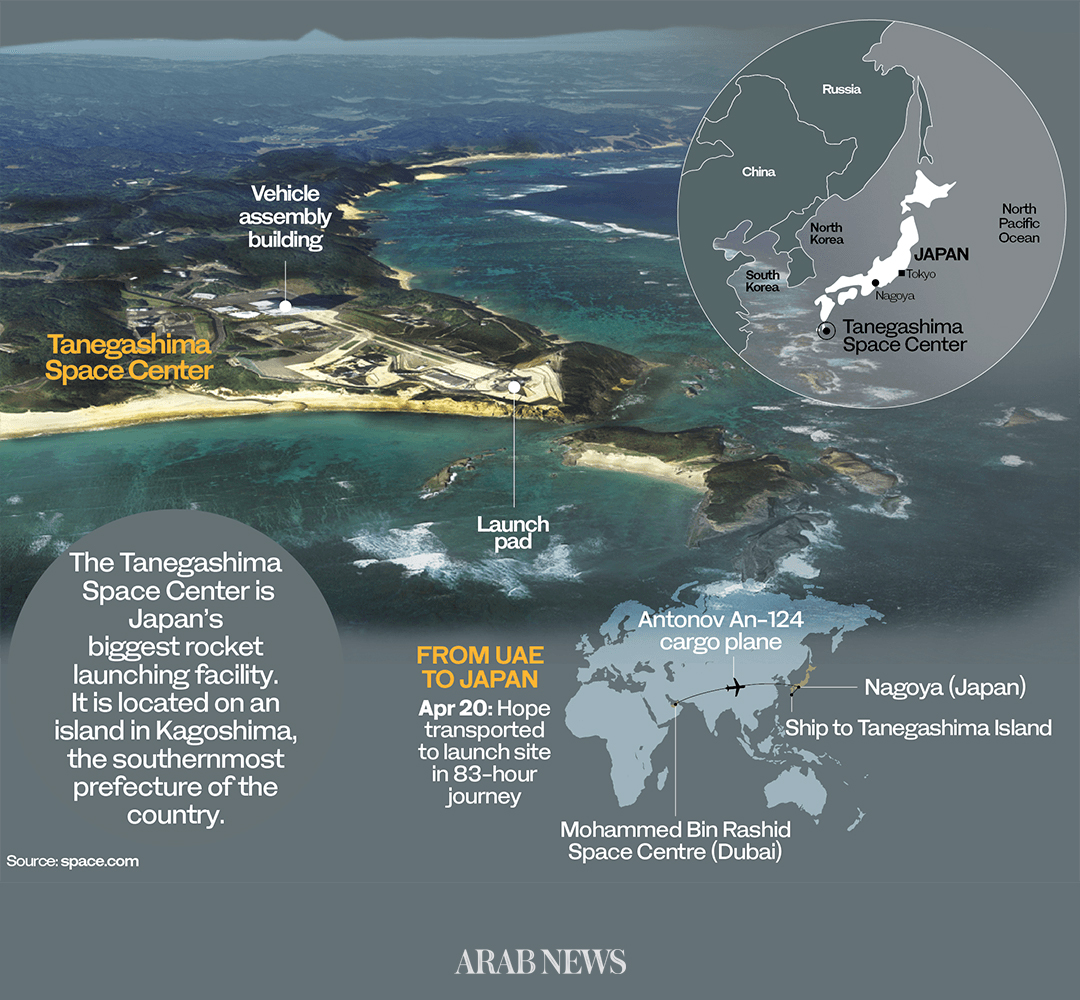
“The cost of the Hope Mars Mission [has] reached $200 million, which is considered among the lowest in the world when compared with similar programs,” Mohammad Al-Gergawi, minister for cabinet affairs and the future of the UAE said in a message posted on Twitter by the Prime Minister’s Office.
The Hope Probe, which was launched by a Mitsubishi Heavy Industries H2A rocket, weighs 289 tonnes and is 53 meters tall.
It is expected to enter orbit around Mars in Feb. 2021, in time for the 50th anniversary of the founding of the UAE.
“This mission embodies the [UAE’s] aspirations, sends a positive message to the world and demonstrates the importance of carrying on unabated despite barriers and challenges,” said Sarah Al-Amiri, minister of state for advanced sciences and the Emirates Mars Mission’s deputy project manager.
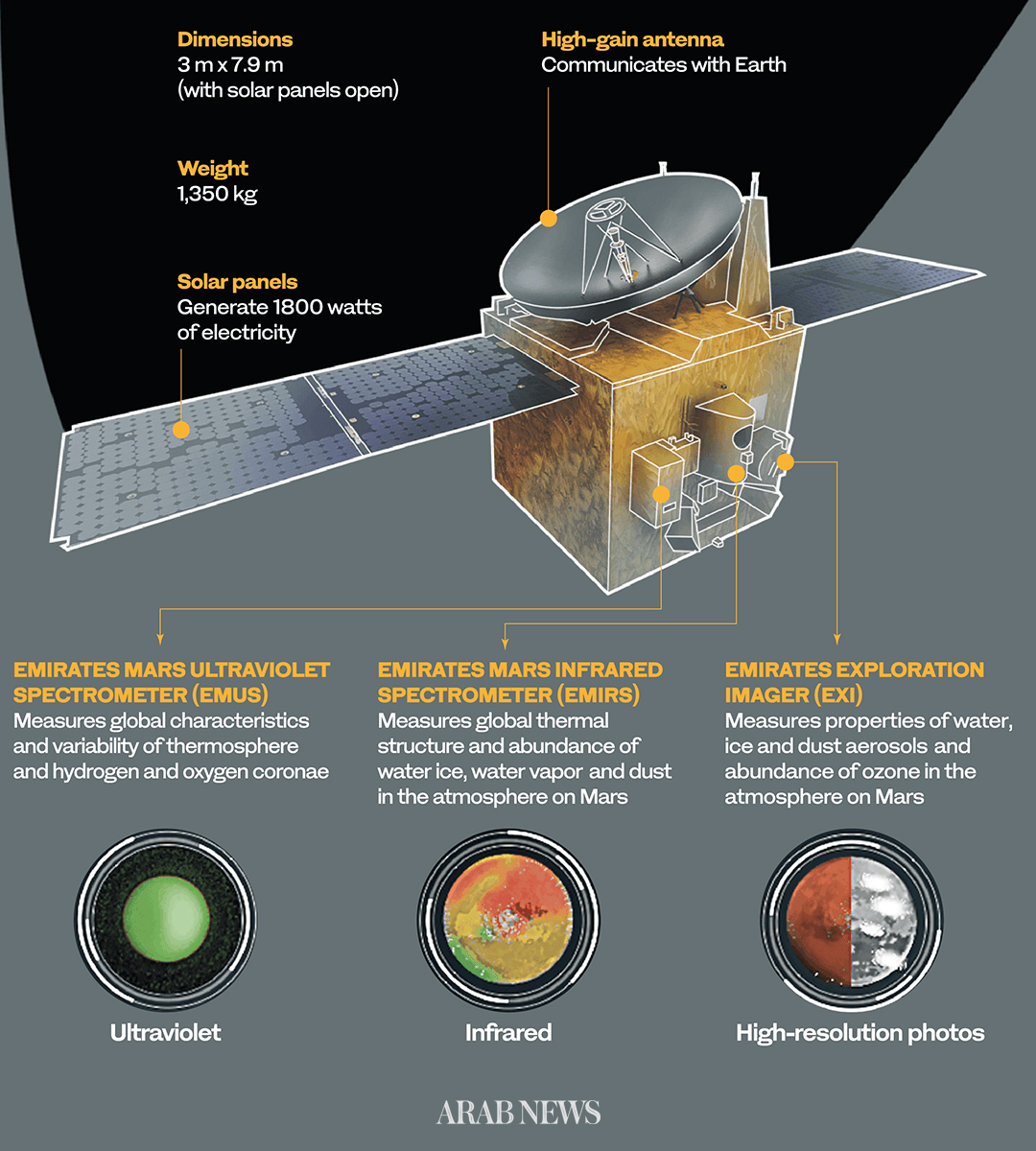
This historic moment for the region follows decades of preparations and work to achieve a grand vision set out in the 1970s by the UAE’s founder, the late Sheikh Zayed bin Sultan Al-Nayhan. His interest in space was triggered by a meeting in 1976 with NASA astronauts who had flown in a number of Apollo missions to the moon.
US President Richard Nixon also presented Sheikh Zayed with a gift of a moon rock collected from the Taurus-Littrow Valley during the 1972 Apollo 17 mission. That relic, from what remains the last moon landing to date, is on display in Al-Ain Museum.
Soon after, Sheikh Zayed sent a clear message to his people, and the world, that Emirati curiosity about, and ambitions for, space exploration would know no boundaries. So began the country’s journey into space.
In 2006, the UAE began collaborating closely with universities and space agencies around the world to establish knowledge-transfer programs, with the goal of one day sending a spacecraft to Mars.
However, it was not until the UAE Space Agency was formed in 2014 that the world really began to sit up and take notice of the country’s ambitious space-exploration plans.
In 2017, 34-year-old military pilot Hazza Al-Mansouri was one of two people selected from 4,000 applicants to join the agency’s inaugural astronaut corps.
After rigorous mental and physical tests, he trained in Russia as a part of an agreement between the Mohammed bin Rashid Space Center and the Russian space agency, Roscosmos.
The UAE’s first astronaut joined the crew of a Soyuz MS-15 spacecraft that took off on Sept. 25, 2019, bound for the International Space Station.
Al-Mansouri’s eight-day mission ended on Oct. 2, when he landed safely in Kazakhstan, after which he proudly stated that he had returned with “Sheikh Zayed’s space mission achieved.”
Thirty-four years earlier, in June 1985, Royal Saudi Air Force pilot Prince Sultan bin Salman became the first Muslim and Arab in space when flew on the STS-51-G mission of the US Space Shuttle Discovery. He was also the first member of a royal family in space and, at the age of 28, the youngest person to fly on the space shuttle.
Two years later, Syrian military aviator Mohammed Faris joined the Soviet Interkosmos training program and flew as a research cosmonaut on the Soyouz TM-3 mission to the Mir space station. He spent seven days, 23 hours and 5 minutes in space.
Now, 51 years after the first moon landing, a team of Emiratis is leading a mission to the Red Planet and will supervise every aspect of the Hope Probe, a task that has been complicated by the global COVID-19 pandemic.
As a result, the mission team has been divided into three groups, given the challenges of transportation, travel, logistics and the need to follow proper health precautions.
The members of the first group arrived in Japan on April 6, where they completed a mandatory quarantine and health tests. The second team followed on April 21. The third team will remain in the UAE, providing back-up and support for the mission.
To ease concerns about the safety of a Mars mission during the pandemic, Sheikh Mohammed bin Rashid Al-Maktoum, prime minister of the UAE and ruler of Dubai, reviewed the final preparations for the mission on July 1.
He confirmed the launch date and described the mission as “an accomplishment for every Arab and a source of pride for every Emirati.”
On his part, Sheikh Hamdan bin Mohammed Al-Maktoum, crown prince of Dubai, said: “Hope Probe highlights our national treasure of hundreds of young Emirati engineers and experts ... . (It) represents a message of hope and optimism to mankind.”
Suhail Al-Dhafri, Emirates Mars Mission deputy project manager and spacecraft lead, said that the probe has undergone a series of tests since its arrival at Tanegashima Space Center in April.
Conducted over 50 working days, they included functional tests of spacecraft subsystems such as electrical power, communications, altitude control, command and control, propulsion, thermal control and software systems.
“The final checks are important steps to ensure that all systems are functioning and meeting the requirements before the fueling,” he said. “Getting these parameters are vital prior to getting the probe ready for the liftoff as per our launch window.”
After it enters orbit around Mars, the Hope Probe will study the planet’s daily and seasonal cycles, along with the erosion of the Martian atmosphere, a process that leaves the planet waterless and ill-suited to life.
The UAE will share the data it collects with more than 200 academic and scientific institutions around the world free of charge.
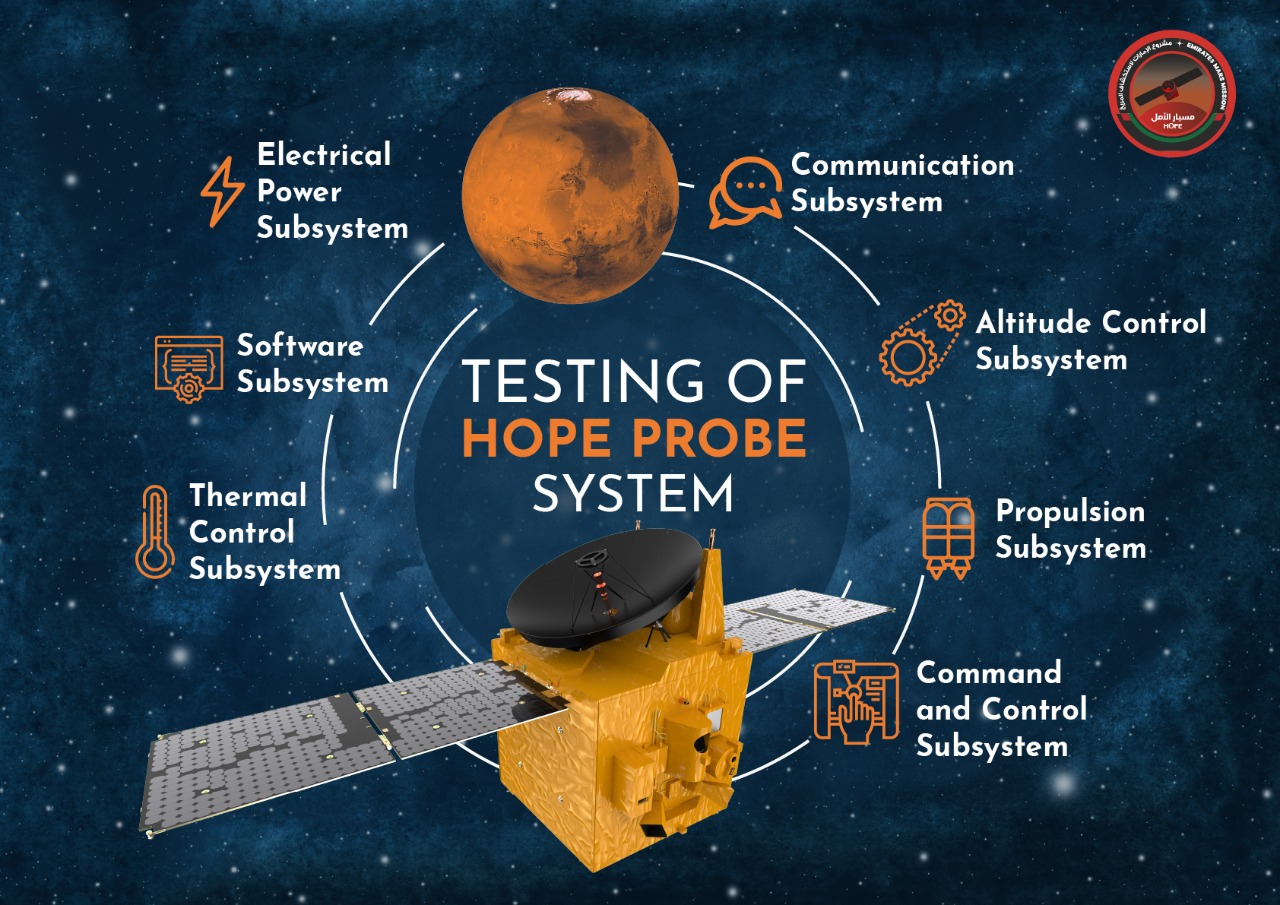
The UAE has plans to establish the first human settlement on Mars by 2117. This month, Sheikh Mohammed announced the launch of the Arab Space Pioneers program, which aims to advance Arab expertise in space science and technologies.
As part of a three-year program, young Arab researchers, scientists, inventors and creative talents will learn the skills required for a career in the expanding space sector.
The UAE promises to keep the world on its toes with its aim of establishing the first inhabitable human settlement on Mars by 2117 — one that can only be achieved through the expertise and determination of future generations.
--------------------


